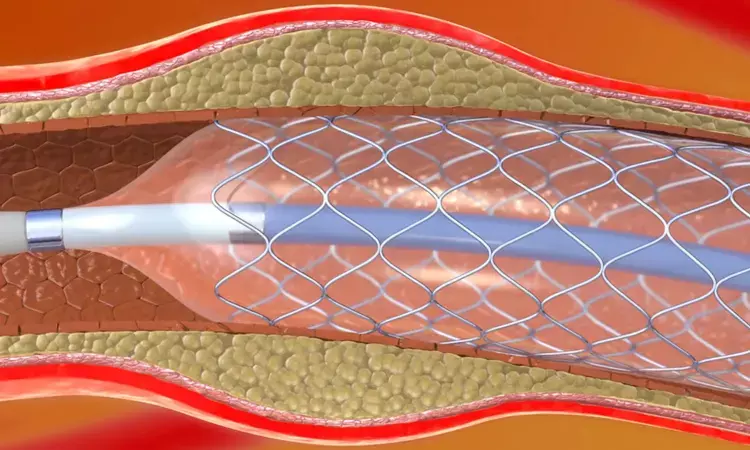- Home
- Medical news & Guidelines
- Anesthesiology
- Cardiology and CTVS
- Critical Care
- Dentistry
- Dermatology
- Diabetes and Endocrinology
- ENT
- Gastroenterology
- Medicine
- Nephrology
- Neurology
- Obstretics-Gynaecology
- Oncology
- Ophthalmology
- Orthopaedics
- Pediatrics-Neonatology
- Psychiatry
- Pulmonology
- Radiology
- Surgery
- Urology
- Laboratory Medicine
- Diet
- Nursing
- Paramedical
- Physiotherapy
- Health news
- Fact Check
- Bone Health Fact Check
- Brain Health Fact Check
- Cancer Related Fact Check
- Child Care Fact Check
- Dental and oral health fact check
- Diabetes and metabolic health fact check
- Diet and Nutrition Fact Check
- Eye and ENT Care Fact Check
- Fitness fact check
- Gut health fact check
- Heart health fact check
- Kidney health fact check
- Medical education fact check
- Men's health fact check
- Respiratory fact check
- Skin and hair care fact check
- Vaccine and Immunization fact check
- Women's health fact check
- AYUSH
- State News
- Andaman and Nicobar Islands
- Andhra Pradesh
- Arunachal Pradesh
- Assam
- Bihar
- Chandigarh
- Chattisgarh
- Dadra and Nagar Haveli
- Daman and Diu
- Delhi
- Goa
- Gujarat
- Haryana
- Himachal Pradesh
- Jammu & Kashmir
- Jharkhand
- Karnataka
- Kerala
- Ladakh
- Lakshadweep
- Madhya Pradesh
- Maharashtra
- Manipur
- Meghalaya
- Mizoram
- Nagaland
- Odisha
- Puducherry
- Punjab
- Rajasthan
- Sikkim
- Tamil Nadu
- Telangana
- Tripura
- Uttar Pradesh
- Uttrakhand
- West Bengal
- Medical Education
- Industry
Preventive PCI shows clinical benefit for Vulnerable non-flow-limiting Coronary Plaque in PREVENT trial

South Korea: Preventive percutaneous coronary intervention (PCI) reduces major adverse cardiac events arising from high-risk vulnerable plaques, compared with optimal medical therapy alone in patients with non-flow-limiting vulnerable coronary plaques, PREVENT trial has shown.
"Focal preventive PCI resulted in a large reduction in target vessel failure at two years (0.4% vs 3.4%; HR 0.11) -- the benefit persisting out to 7 years (6.5% vs 9.4%; HR 0.54), compared with standard therapy alone," the researchers reported that the American College of Cardiology (ACC) meeting. The findings were subsequently published in The Lancet.
Target vessel failure was defined as a composite of target vessel myocardial infarction (MI), cardiac death, ischemia-driven target vessel revascularization, and hospitalization for unstable or progressive angina -- the benefit of PCI was driven by the latter two endpoint components.
The study stated, "Given that PREVENT is the first large trial to show the potential effect of the focal treatment for vulnerable plaques, these findings support consideration to expand indications for PCI to include non-flow-limiting, high-risk vulnerable plaques."
Sudden cardiac death and acute coronary syndrome are often caused by rupture and thrombosis of lipid-rich atherosclerotic coronary plaques (known as vulnerable plaques), many of which are non-flow-limiting. The effectiveness and safety of focal preventive therapy with PCI of vulnerable plaques in reducing adverse cardiac events are unknown.
To fill this knowledge gap, Prof Seung-Jung Park, University of Ulsan College of Medicine, Seoul, South Korea, and colleagues aimed to assess whether preventive PCI of non-flow-limiting vulnerable plaques improves clinical outcomes versus optimal medical therapy alone.
For this purpose, the researchers conducted a PREVENT trial at 15 research hospitals in four countries. Patients aged 18 years or older with non-flow-limiting (fractional flow reserve >0·80) vulnerable coronary plaques identified by intracoronary imaging were included. They were randomly assigned in a 1:1 ratio to either PCI plus optimal medical therapy or optimal medical therapy alone. In all enrolled patients, follow-up continued annually until the last enrolled patient reached two years after randomization.
The study's primary outcome was a composite of death from cardiac causes, ischemia-driven target-vessel revascularization, target-vessel myocardial infarction, or hospitalization for unstable or progressive angina.
The study led to the following findings:
· 5627 patients were screened for eligibility between 2015 and 2021, 1606 of whom were enrolled and randomly assigned to PCI (n=803) or optimal medical therapy alone (n=803). 73% of patients were men.
· Two-year follow-up for the primary outcome assessment was completed in 97% of patients (percutaneous coronary intervention group n=780; optimal medical therapy group n=776).
· At 2 years, the primary outcome occurred in 0·4% of patients in the percutaneous coronary intervention group and 3·4% of patients in the medical therapy group.
· The effect of preventive percutaneous coronary intervention was directionally consistent for each component of the primary composite outcome.
· Serious clinical or adverse events did not differ between the percutaneous coronary intervention group and the medical therapy group: at two years, 0·5% versus 1·3% patients died, and 1·1% versus 1·7% patients had a myocardial infarction.
The researchers of the PREVENT trial acknowledged that their open-label study design left room for a placebo effect and ascertainment bias. Lower-than-expected event rates also limited them.
They pointed to multiple ongoing randomized trials -- INTERCLIMA, COMBINE-INTERVENE, FAVOR V AMI, and VULNERABLE-- for more answers about preventive PCI on vulnerable plaques.
Reference:
DOI: https://doi.org/10.1016/S01406736(24)00413-6
Dr Kamal Kant Kohli-MBBS, DTCD- a chest specialist with more than 30 years of practice and a flair for writing clinical articles, Dr Kamal Kant Kohli joined Medical Dialogues as a Chief Editor of Medical News. Besides writing articles, as an editor, he proofreads and verifies all the medical content published on Medical Dialogues including those coming from journals, studies,medical conferences,guidelines etc. Email: drkohli@medicaldialogues.in. Contact no. 011-43720751


